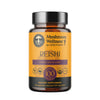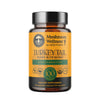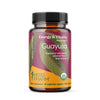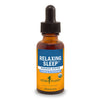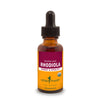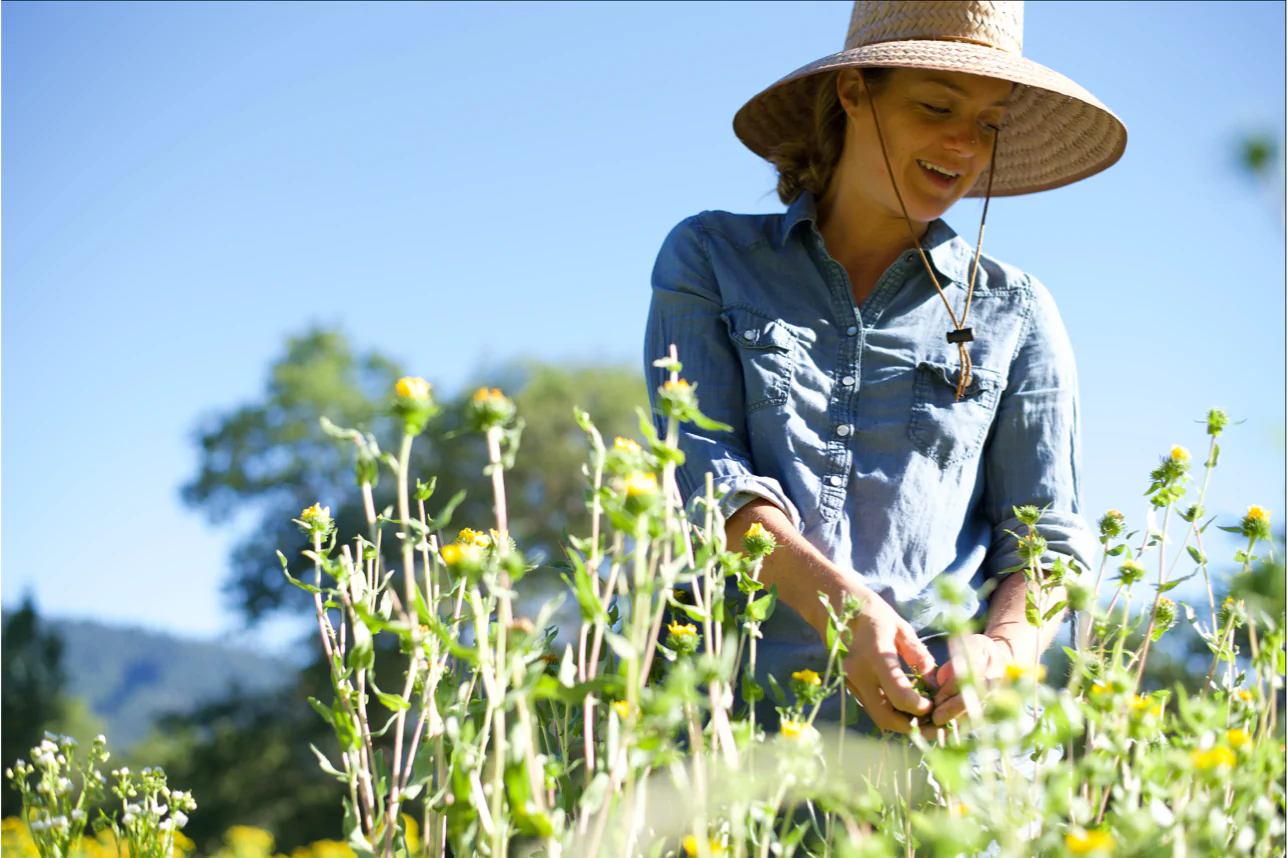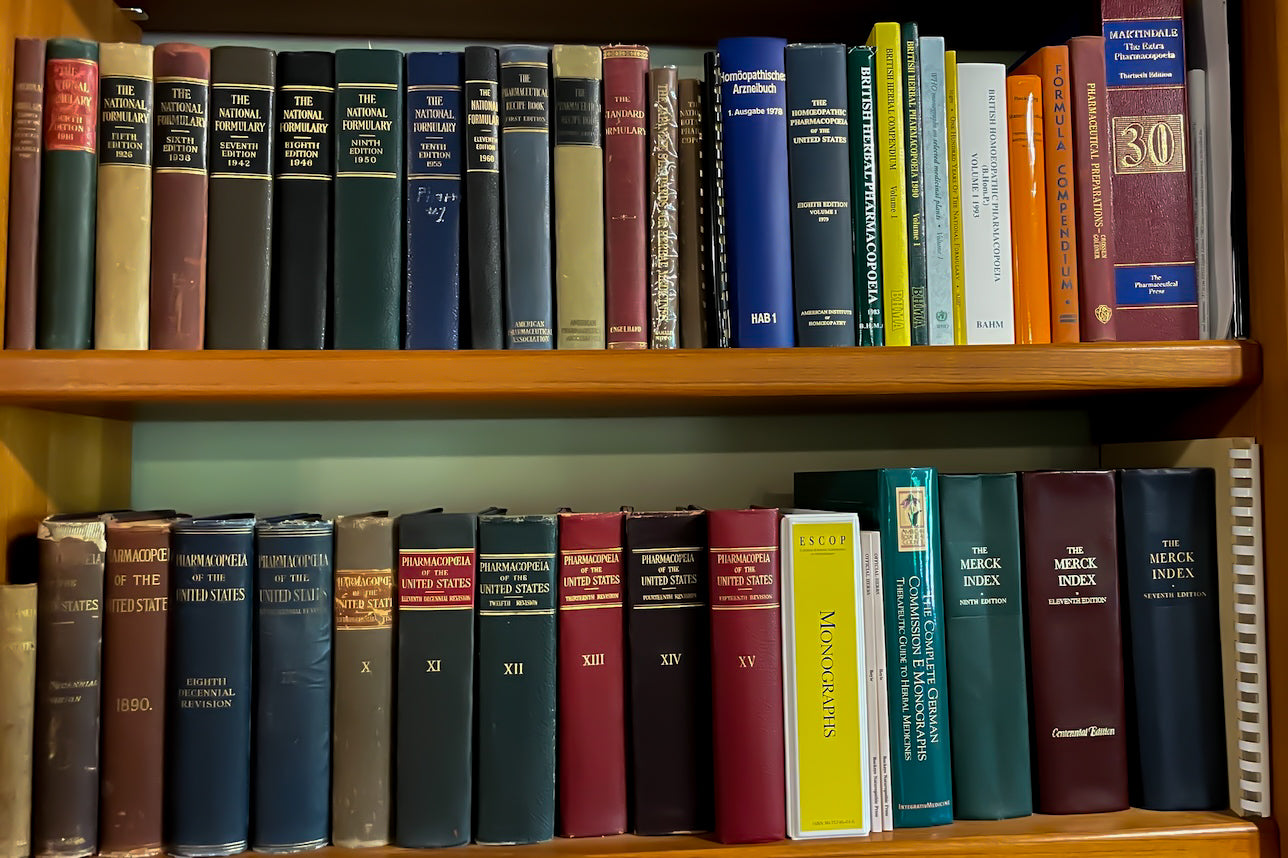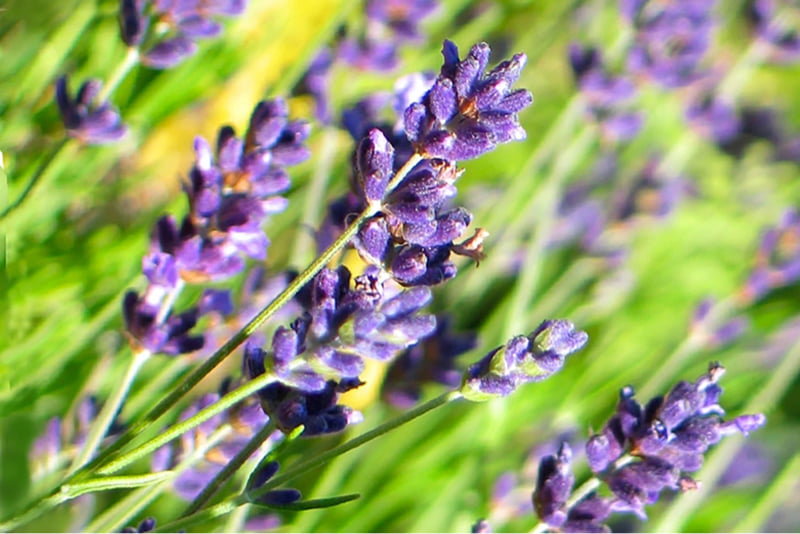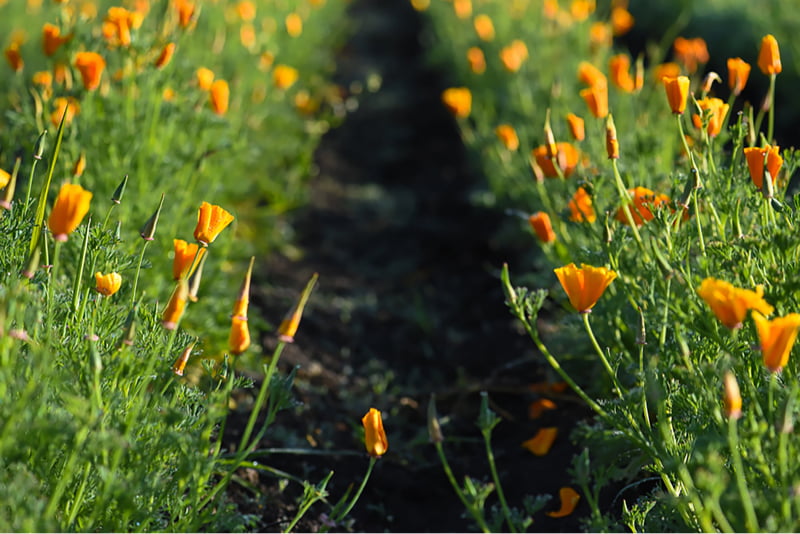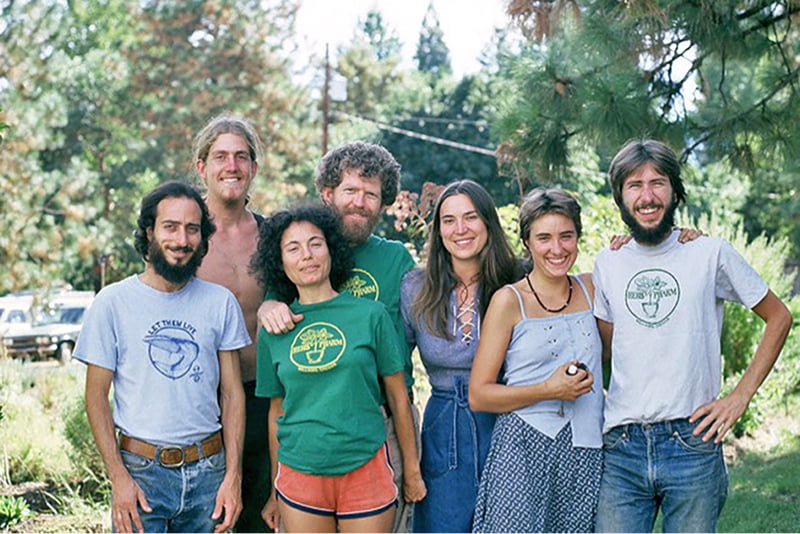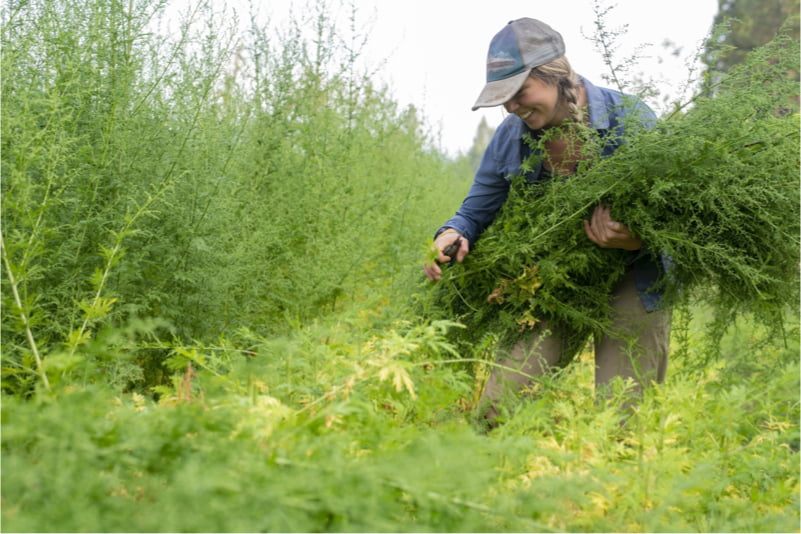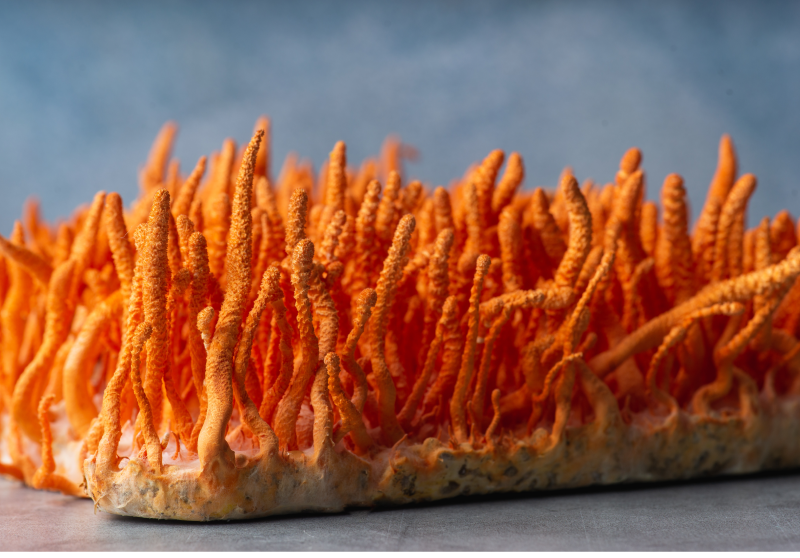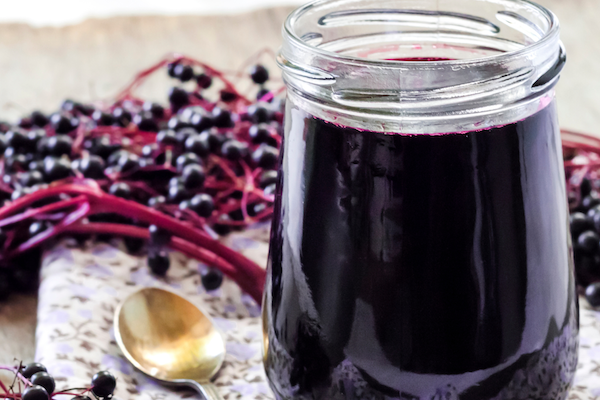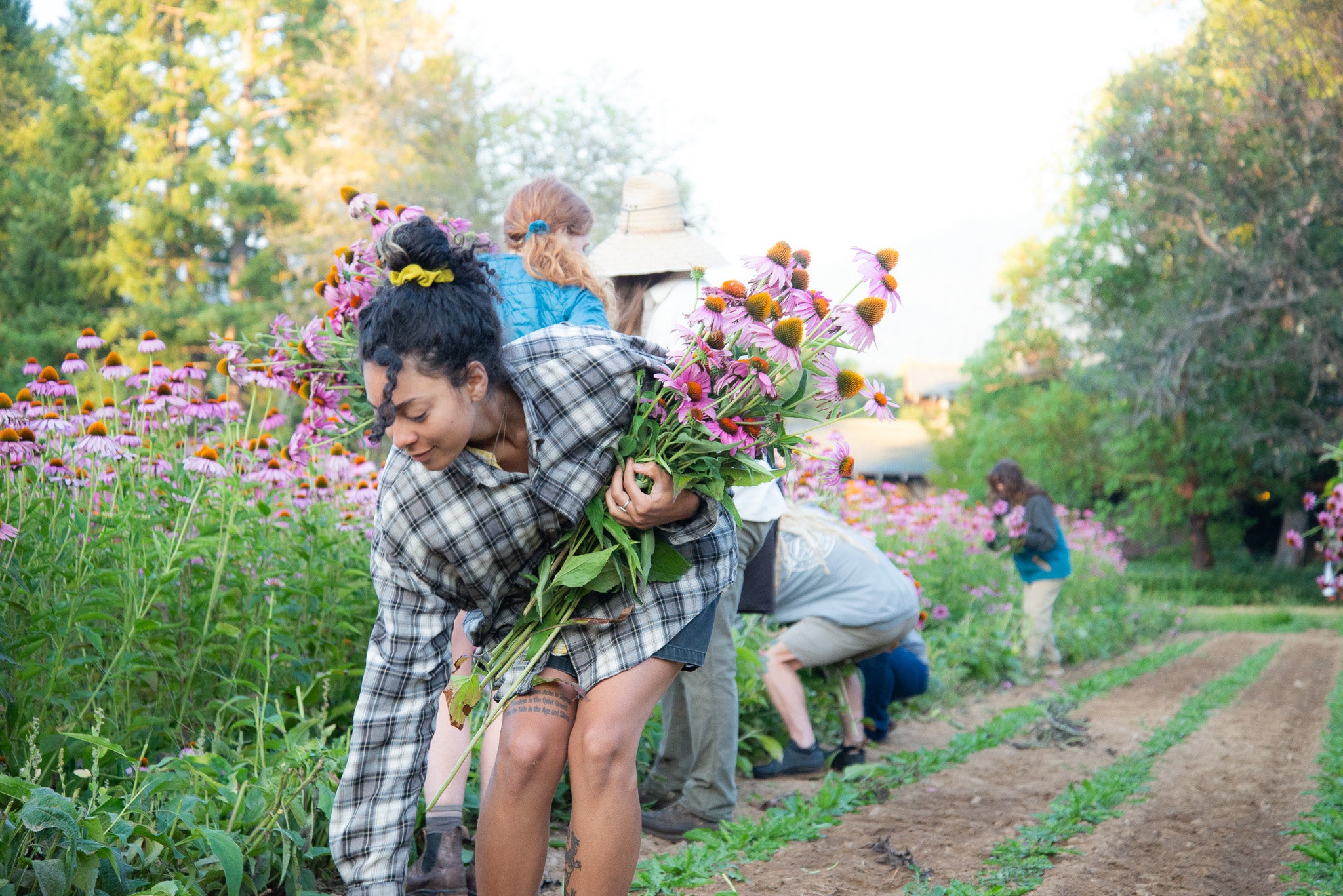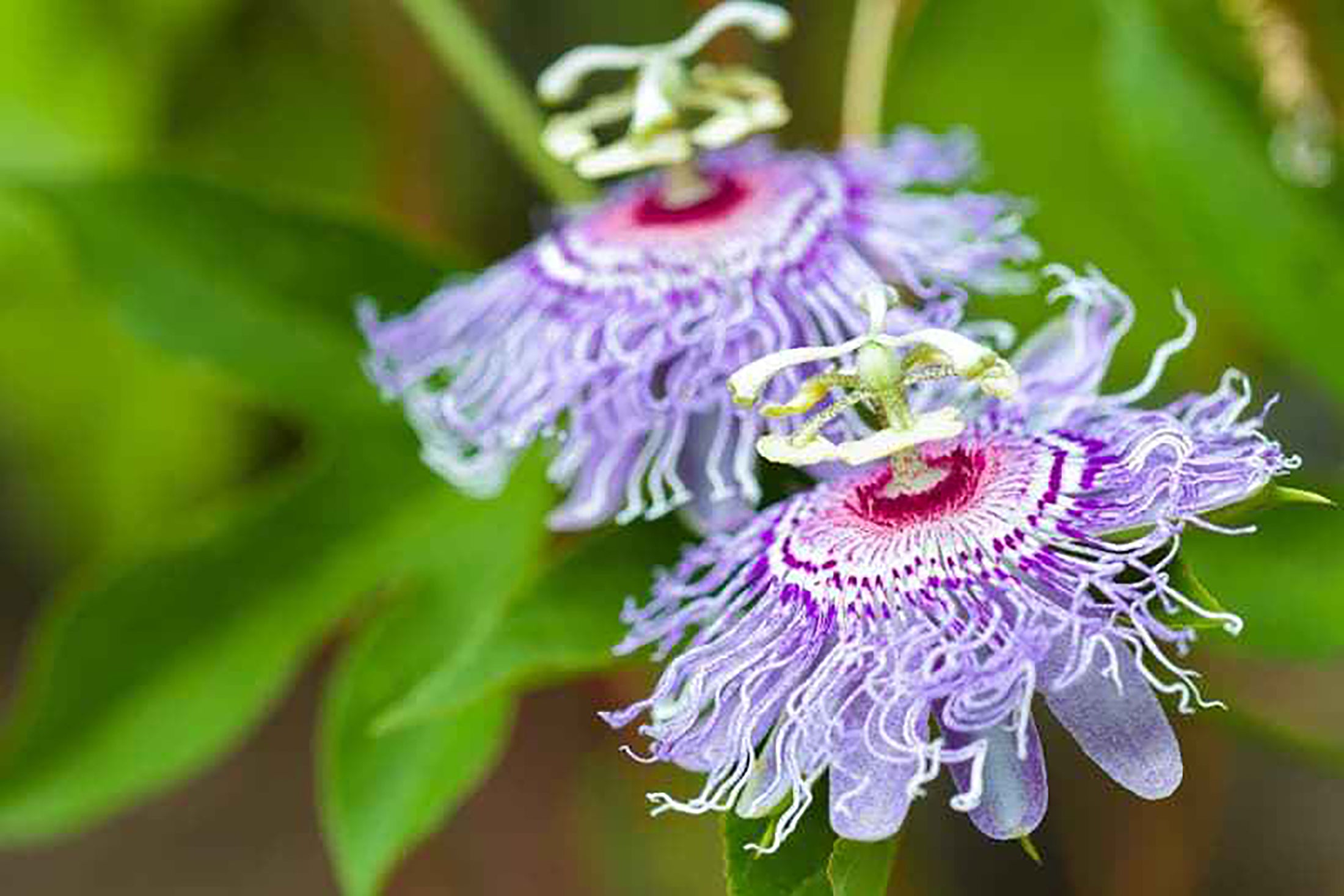
Plants & Farm StoriesOct 9, 2024
5 of Our Pharmers' Favorite Gardening Books
Ready to take your garden to the next level? The advice you’ve been looking for could be just a turn of the
page away. Whether you want to maximize your backyard harvest or just learn more about regenerative and
natural farming and gardening, these books are worth adding to your wish list.
Each of these titles has been hand-picked by Herb Pharm employees who work on our Regenerative Organic
Certified® farms and educational garden. Below you’ll find 5 books they recommend and learn why
they’re perennial favorites.

Matt Dybala
Director of Agricultural Operations
Better Vegetable Gardens the Chinese Way:
Peter Chan’s Raised Bed System
Author: Peter Chan
Peter Chan has blended the age-old wisdom of Chinese gardeners with the goals and needs of
North American gardening. The result is a system of gardening that's easy, productive, and
just fine for a small backyard. Peter proved this system worked well in the Northwest; his
legion of supporters has demonstrated it makes gardening a joy wherever it's tried. The book
is packed with hints – how to make compost the no-sweat way, simple methods of starting
plants, harvesting tricks, and stretching the growing season.
Why Matt Loves It:
“In the book, Peter translates the complexity of growing your own food into the simple process of
creating a raised bed garden using only a few simple hand tools. Besides the written content, the
book is filled with transformative photos of Peter’s suburban backyard into a bountiful source of
healthy food for his family and community. I leaned exclusively on this book as my main source of
inspiration and guidance when planting my very first garden nearly 30 years ago and still cherish
these methods today.”

Mark Disharoon
Farm Manager
Plants for Your Food Forest:
500 Plants for Temperate Food Forests and Permaculture Gardens
Author: Plants for a Future
An important new book from PFAF. It focuses on the attributes of plants suitable for food
forests, what each can contribute to a food forest ecosystem, including carbon sequestration,
and the kinds of foods they yield. The book suggests that community and small-scale food forests
can provide a real alternative to intensive industrialized agriculture, and help to combat the
many interrelated environmental crises that threaten the very future of life on Earth.
Why Mark Loves It:
"This book gives good ideas for incorporating long term food shrubs and trees into any
environment.”

Sayaka Lean
Garden Education Coordinator
The Regenerative Garden:
80 Practical Projects for Creating a Self-Sustaining Garden Ecosystem
Author: Stephanie Rose
Discover how to work with nature, instead of against it, by employing permaculture techniques to
create a garden that is not just more beautiful and productive, but also more resilient.
While the word permaculture might sound intimidating, the principals behind it are not. The main
goal of permaculture is to turn your space into a functioning ecosystem that’s less reliant on
external resources and better able to sustain itself through many seasons of growth and change
as it resists pests, diseases, and climate extremes.
Why Sayaka Loves It:
“This book has lots of colorful pictures and makes it easy for beginners to start a self-sustaining
garden. I recommend this book to someone who is more visually oriented. As Rosemary Gladstar wrote a
foreword to this book, many herbalists might use this this book as inspiration to start their
regenerative garden at home.”

Mykola Havrulik
Farm Crew Member & Ukrainian Refugee
The One-Straw Revolution
Author: Masanobu Fukuoka
The One-Straw Revolution represents the first commentary on the work of the late Japanese farmer
and philosopher Masanobu Fukuoka (1913 – 2008), widely considered to be natural farming’s most
influential practitioner.
Mr. Fukuoka is perhaps most known for his bestselling book The One-Straw Revolution (1978), a
manifesto on the importance of no-till agriculture, which was at the time of publication a
radical challenge to the global systems that supply the world’s food, and still inspires readers
today.
Why Mykola Loves It:
“Back in Ukraine, I followed this natural farming method to my Hazelnut tree seeding and
saved my 1-acre homestead farm.”

Devin Keller
Farm Crew Member
Cho’s Global
Natural Farming
Author: Rohini Reddy
Natural Farming is an innovative new method of farming that utilizes nature's powers for maximum
performance rather than human intervention. Natural Farming uses natural materials instead of
chemicals to make its unique inputs. Materials are locally available and cheap, and the farming
inputs are made by the farmers instead of being purchased from the market, thus lowering cost
for the farmers and converting waste as resources.
Why Devin Loves It:
“I like this book because it’s a great resource for people who are interested in learning natural farming
techniques instead of resorting to the use of chemicals. I love the information on fermented plant juice
on page 24. I personally make compost tea in my garden so it was very interesting and helpful to learn
what Dr. Cho says in regard to the symbiosis between different plant juices and plants.
“This book is the original Korean Natural Farming guide that originated in the 1960’s and was founded by
Dr. Cho Han Kyu. The reader will learn various methods of natural farming techniques which utilize
nature for maximum output and without the use of chemicals. This alternative way of farming assures both
high yield and good quality and became recognized in a time of chemical intensive agriculture which had
just begun in South Korea at the time.”
